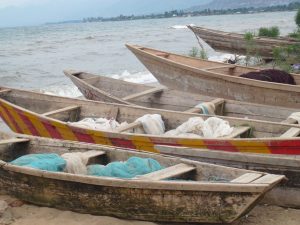
Fishing boats filled with bed nets line Lake Tanganyika
Malaria is the number one cause of death in the Lake Tanganyika Basin, and the need for appropriate solutions to combat this disease couldn’t be more pressing. Over the past two years, we have begun to shed light on the complexities of malaria prevention in this region, and the clear need for alternative and innovative solutions. “Business as usual” malaria eradication is failing this part of the world, all the more staggering considering 40% of all worldwide malaria deaths (78% of which are of children under 5) occur in Nigeria and the DRC alone.
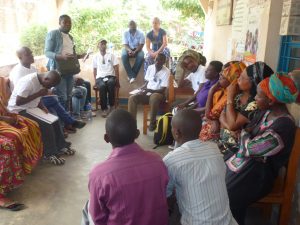
Briefing Relais Communautaires before data collection in a Health Area in Uvira
For the past several weeks, our teams have been collecting extensive household-level data in South Kivu, DRC, covering indicators on health, socio-economics, fisheries, security, and malaria control, in particular the use and effectiveness of bed nets. This is a challenging and essential exercise that encapsulates the LTFHC’s unique approach of data-driven, boots on the ground interventions.
Over a year ago, we established a cross-sectoral study group of experts from The Chicago Booth School of Business, Tufts University, Harvard Kennedy School of Government, and impl project, combining expertise on behavioral economics, environmental economics, parasitology, field data collection and analysis, and public health. Working with this team, we designed a set of comprehensive surveys.
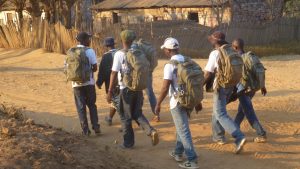
CLAs head out for data collection
We invested deeply in our field staff by conducting intensive training pre-deployment, covering everything from understanding the goals and challenges of academically rigorous data collection, to empathic community engagement, and the ethical treatment of personal information.
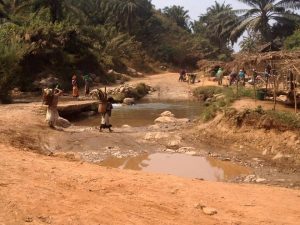
Road conditions in the Eastern DRC are a significant hindrance to all who operate on the ground in this region
Data collection has been a priority for the LTFHC for years. Although operationally intense, rigorously gathered information helps us and the world to understand both the specific problems and practices surrounding malaria control, as well as the complex landscape in which they arise. Without this information we cannot begin to design and implement appropriate interventions, and will continue to see unintended (and potentially negative) consequences of old and contextually ineffective methods.
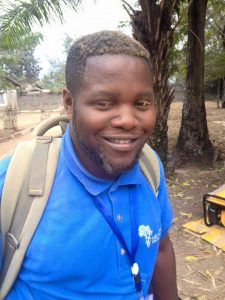
The CLAs are dusty after a long day’s work!
We are proud of our team and their commitment to this arduous work, and bolstered by our strong relationships with the local community. Even in the face of complex challenges including malaria, lack of WASH, food insecurity, growing physical insecurity and local violent dynamics, we are nonetheless confident that there is a path forward to fewer malaria deaths.
Despite what we are learning and sharing about the magnitude of this problem, the international community has yet to dedicate the necessary resources to truly understand and reduce malaria incidence and death in highly endemic areas. Together with partners in academia, public health, malaria innovation and the private sector, we can all hopefully come together to start deploying a wider toolkit for this problem. Only by channeling our energy into this preliminary process can we hope to develop new and better interventions that are truly innovative and community-appropriate.
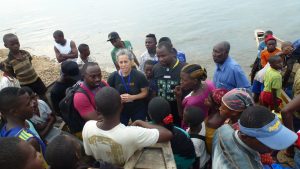
Amy and Anderson speak to fishermen on Lake Tanganyika about local fishing practices
We hope you will consider investing in our capacity to continue this exercise– we could not do this work without all of you. We look forward to keeping you involved in this fascinating and impactful journey as it progresses.
In case you missed it, read more about malaria bed net misuse from the New York Times (our initial data from Lake Tanganyika is highlighted).
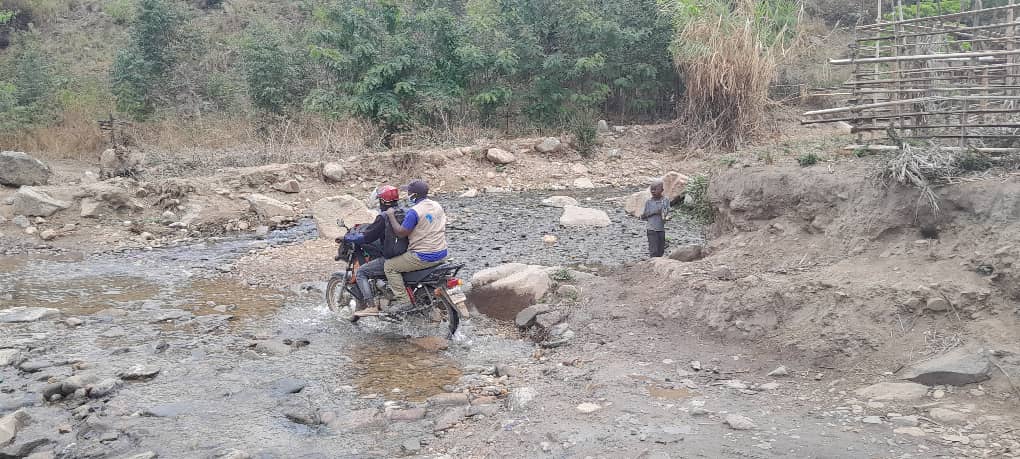



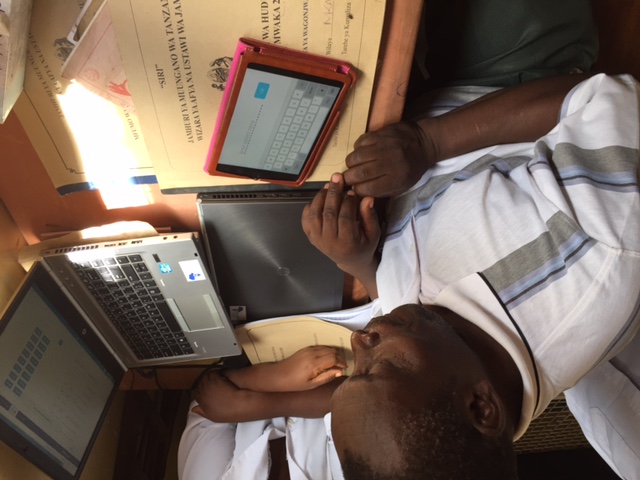

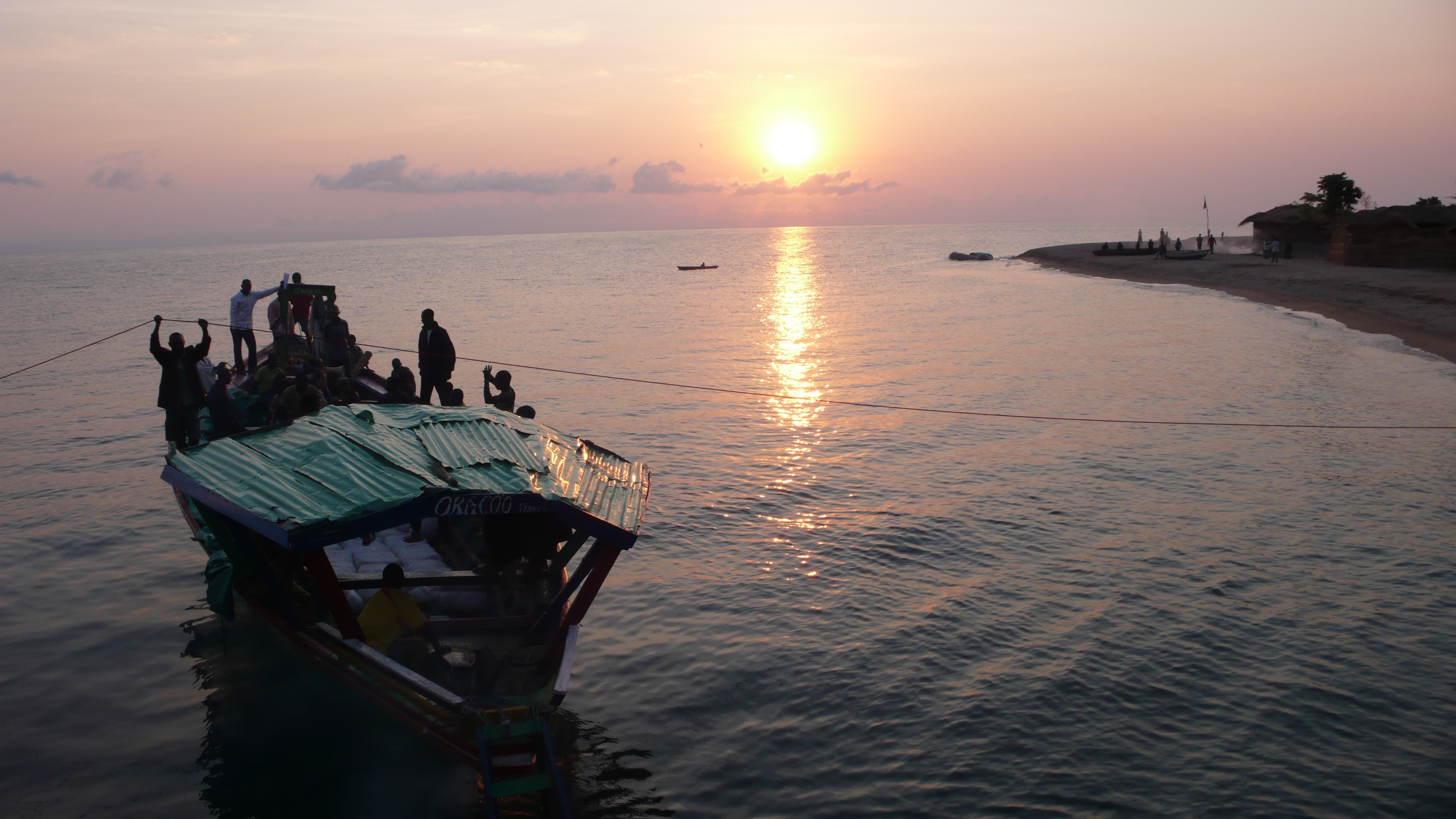

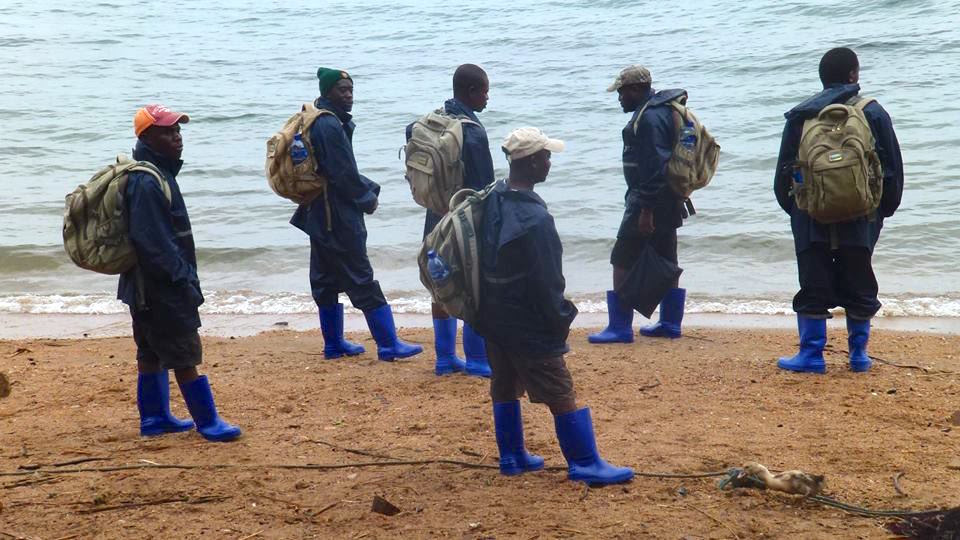 responsible for the Burundian refugee population in Lusenda camp (now overflowing beyond capacity at 20,000 people), uses their LTFHC-supplied radio to speak regularly with the Nundu Reference Hospital. This allows for much smoother management of the center, ensures the reference hospital is adequately prepared for incoming refugee patients, and provides up to date information to other partners managing the refugee crisis.
responsible for the Burundian refugee population in Lusenda camp (now overflowing beyond capacity at 20,000 people), uses their LTFHC-supplied radio to speak regularly with the Nundu Reference Hospital. This allows for much smoother management of the center, ensures the reference hospital is adequately prepared for incoming refugee patients, and provides up to date information to other partners managing the refugee crisis. We are now preparing to pilot a tablet-based EMR application in ten health centers in Tanganyika Province, DRC early next year. At the request of the Tanganyika MOH, this exciting next iteration of the program focuses on prenatal data collection. We are, however, designing the software to accommodate other activities and indicators at the health center level in the future, such as delivery services, childhood illnesses, and malaria diagnostics and treatment. While there are many “m-health” applications in the global healthcare space, few are designed and built in partnership with exactly the people the technology is intended to serve. Our tablet app is thus a powerful example of what differentiates us in our approach.
We are now preparing to pilot a tablet-based EMR application in ten health centers in Tanganyika Province, DRC early next year. At the request of the Tanganyika MOH, this exciting next iteration of the program focuses on prenatal data collection. We are, however, designing the software to accommodate other activities and indicators at the health center level in the future, such as delivery services, childhood illnesses, and malaria diagnostics and treatment. While there are many “m-health” applications in the global healthcare space, few are designed and built in partnership with exactly the people the technology is intended to serve. Our tablet app is thus a powerful example of what differentiates us in our approach.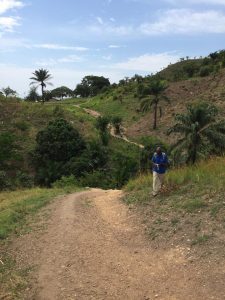
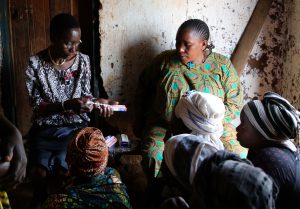
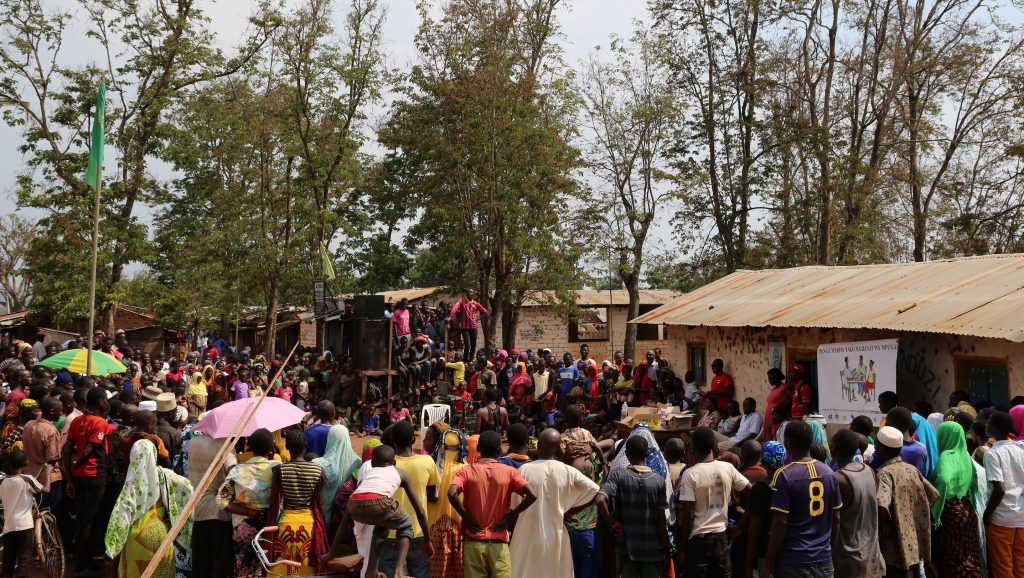







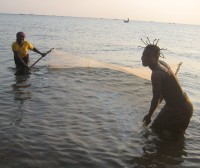 Building upon our previous research (
Building upon our previous research (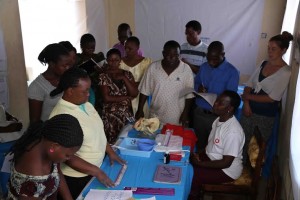
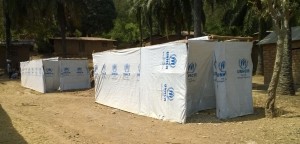 As one of the few organizations with a consistent presence in the Lake Tanganyika Basin, we have delivered on the ground feedback for governmental and multi-lateral stakeholders during this tumultuous time. Through our local office in Kigoma, Tanzania, we have also provided housing and transport for other organizations actively working with Burundian refugees. We continue to work closely with authorities monitoring the situation in Burundi— please contact us if you would like to receive more information.
As one of the few organizations with a consistent presence in the Lake Tanganyika Basin, we have delivered on the ground feedback for governmental and multi-lateral stakeholders during this tumultuous time. Through our local office in Kigoma, Tanzania, we have also provided housing and transport for other organizations actively working with Burundian refugees. We continue to work closely with authorities monitoring the situation in Burundi— please contact us if you would like to receive more information.